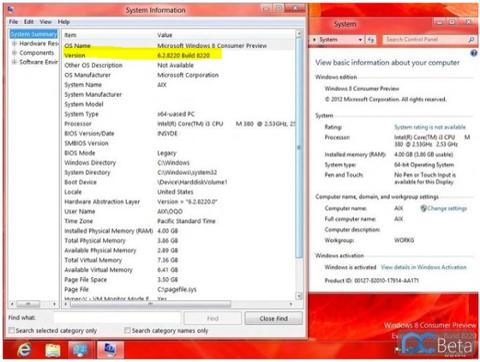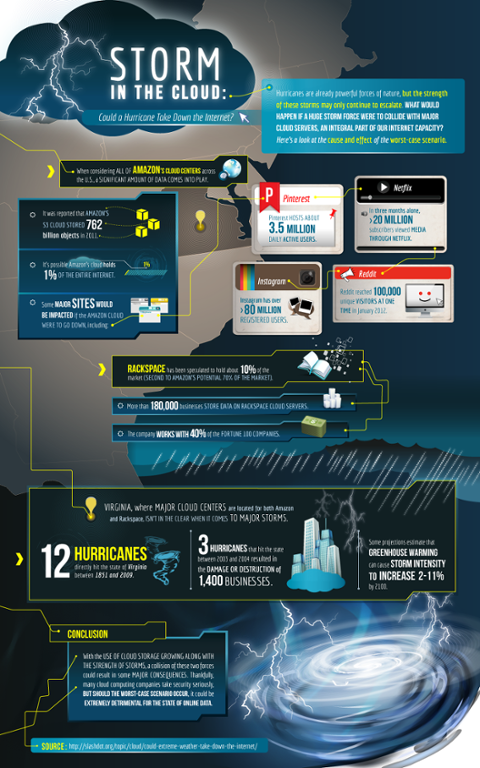 Maybe it’s time for the IT giants to dump their hardware arms. IBM’s hardware business is in the midst of a titanic slump, tumbling 17 percent in the third quarter of this year. Over the past nine months, that division has lost roughly $713 million. (IBM’s overall net income and gross profit margin increased for the quarter, thanks in large part to revenue from its software and services.) Big Blue blames much of that implosion on China, where the central government has apparently cut back on IT spending. In response, the company decided to reassign senior vice president James Bramante, its head of growth markets, to an as-yet-unnamed position. “IBM has been challenged with changing the model on the hardware front, and now the growth markets are a surprise drop,” Gartner analyst Chris Ambrose told Bloomberg. But IBM isn’t the only company wrestling with a hardware slump. Although Oracle’s enjoyed some modest increases in software sales over the past few quarters, its hardware division has continued to lag. Hewlett-Packard, Dell, and other major IT firms have all watched over the past year as their own hardware businesses have transformed from reliable revenue-generators into anemic burdens on their respective bottom lines. In response, these companies have begun to focus on services and software. IBM’s revenue from cloud, business analytics, and services projects grew steadily over the past year, somewhat compensating for the hardware declines. Oracle has taken a similar route with an aggressive cycle of cloud-based software releases; it’s also signed alliances with a number of competitors, including Salesforce, to cross-market cloud software and services. Simply jumping on the software-and-services wagon is no guarantee of a turnaround, however, as some companies are learning. HP shelled out billions of dollars for British IT firm Autonomy, thinking that the purchase would allow it to quickly build out a sizable presence in the burgeoning data-analytics industry. Despite that optimism, the whole thing eventually turned into a debacle, with HP taking a multi-billion-dollar write-down and accusing Autonomy’s staff of “accounting improprieties.” Over at Dell, meanwhile, a promising Infrastructure-as-a-Service (IaaS) project ended up whacked in favor of partnering with smaller companies on public-cloud initiatives. Although Dell has made some notable acquisitions in the services space—most notably Enstratius, a cloud-software and consulting company—it’s done nothing that would put it on equal footing with Amazon, IBM, Oracle, or the other 800-pound gorillas in the space. Despite those misfires, companies such as Dell and HP know they need to make some big moves (and soon) if they want to stay relevant in this new computing environment. The biggest question—and this goes for IBM and Oracle, as well—is whether “staying relevant” will eventually mean cutting back or wholly eliminating their hardware divisions. Given the drag that hardware’s become on these firms’ bottom lines, it’s likely that more than a few executives are considering exactly that sort of move. Image: Huguette Roe/Shutterstock.com
Maybe it’s time for the IT giants to dump their hardware arms. IBM’s hardware business is in the midst of a titanic slump, tumbling 17 percent in the third quarter of this year. Over the past nine months, that division has lost roughly $713 million. (IBM’s overall net income and gross profit margin increased for the quarter, thanks in large part to revenue from its software and services.) Big Blue blames much of that implosion on China, where the central government has apparently cut back on IT spending. In response, the company decided to reassign senior vice president James Bramante, its head of growth markets, to an as-yet-unnamed position. “IBM has been challenged with changing the model on the hardware front, and now the growth markets are a surprise drop,” Gartner analyst Chris Ambrose told Bloomberg. But IBM isn’t the only company wrestling with a hardware slump. Although Oracle’s enjoyed some modest increases in software sales over the past few quarters, its hardware division has continued to lag. Hewlett-Packard, Dell, and other major IT firms have all watched over the past year as their own hardware businesses have transformed from reliable revenue-generators into anemic burdens on their respective bottom lines. In response, these companies have begun to focus on services and software. IBM’s revenue from cloud, business analytics, and services projects grew steadily over the past year, somewhat compensating for the hardware declines. Oracle has taken a similar route with an aggressive cycle of cloud-based software releases; it’s also signed alliances with a number of competitors, including Salesforce, to cross-market cloud software and services. Simply jumping on the software-and-services wagon is no guarantee of a turnaround, however, as some companies are learning. HP shelled out billions of dollars for British IT firm Autonomy, thinking that the purchase would allow it to quickly build out a sizable presence in the burgeoning data-analytics industry. Despite that optimism, the whole thing eventually turned into a debacle, with HP taking a multi-billion-dollar write-down and accusing Autonomy’s staff of “accounting improprieties.” Over at Dell, meanwhile, a promising Infrastructure-as-a-Service (IaaS) project ended up whacked in favor of partnering with smaller companies on public-cloud initiatives. Although Dell has made some notable acquisitions in the services space—most notably Enstratius, a cloud-software and consulting company—it’s done nothing that would put it on equal footing with Amazon, IBM, Oracle, or the other 800-pound gorillas in the space. Despite those misfires, companies such as Dell and HP know they need to make some big moves (and soon) if they want to stay relevant in this new computing environment. The biggest question—and this goes for IBM and Oracle, as well—is whether “staying relevant” will eventually mean cutting back or wholly eliminating their hardware divisions. Given the drag that hardware’s become on these firms’ bottom lines, it’s likely that more than a few executives are considering exactly that sort of move. Image: Huguette Roe/Shutterstock.com When Will IT Giants Start Dumping Hardware Divisions?
 Maybe it’s time for the IT giants to dump their hardware arms. IBM’s hardware business is in the midst of a titanic slump, tumbling 17 percent in the third quarter of this year. Over the past nine months, that division has lost roughly $713 million. (IBM’s overall net income and gross profit margin increased for the quarter, thanks in large part to revenue from its software and services.) Big Blue blames much of that implosion on China, where the central government has apparently cut back on IT spending. In response, the company decided to reassign senior vice president James Bramante, its head of growth markets, to an as-yet-unnamed position. “IBM has been challenged with changing the model on the hardware front, and now the growth markets are a surprise drop,” Gartner analyst Chris Ambrose told Bloomberg. But IBM isn’t the only company wrestling with a hardware slump. Although Oracle’s enjoyed some modest increases in software sales over the past few quarters, its hardware division has continued to lag. Hewlett-Packard, Dell, and other major IT firms have all watched over the past year as their own hardware businesses have transformed from reliable revenue-generators into anemic burdens on their respective bottom lines. In response, these companies have begun to focus on services and software. IBM’s revenue from cloud, business analytics, and services projects grew steadily over the past year, somewhat compensating for the hardware declines. Oracle has taken a similar route with an aggressive cycle of cloud-based software releases; it’s also signed alliances with a number of competitors, including Salesforce, to cross-market cloud software and services. Simply jumping on the software-and-services wagon is no guarantee of a turnaround, however, as some companies are learning. HP shelled out billions of dollars for British IT firm Autonomy, thinking that the purchase would allow it to quickly build out a sizable presence in the burgeoning data-analytics industry. Despite that optimism, the whole thing eventually turned into a debacle, with HP taking a multi-billion-dollar write-down and accusing Autonomy’s staff of “accounting improprieties.” Over at Dell, meanwhile, a promising Infrastructure-as-a-Service (IaaS) project ended up whacked in favor of partnering with smaller companies on public-cloud initiatives. Although Dell has made some notable acquisitions in the services space—most notably Enstratius, a cloud-software and consulting company—it’s done nothing that would put it on equal footing with Amazon, IBM, Oracle, or the other 800-pound gorillas in the space. Despite those misfires, companies such as Dell and HP know they need to make some big moves (and soon) if they want to stay relevant in this new computing environment. The biggest question—and this goes for IBM and Oracle, as well—is whether “staying relevant” will eventually mean cutting back or wholly eliminating their hardware divisions. Given the drag that hardware’s become on these firms’ bottom lines, it’s likely that more than a few executives are considering exactly that sort of move. Image: Huguette Roe/Shutterstock.com
Maybe it’s time for the IT giants to dump their hardware arms. IBM’s hardware business is in the midst of a titanic slump, tumbling 17 percent in the third quarter of this year. Over the past nine months, that division has lost roughly $713 million. (IBM’s overall net income and gross profit margin increased for the quarter, thanks in large part to revenue from its software and services.) Big Blue blames much of that implosion on China, where the central government has apparently cut back on IT spending. In response, the company decided to reassign senior vice president James Bramante, its head of growth markets, to an as-yet-unnamed position. “IBM has been challenged with changing the model on the hardware front, and now the growth markets are a surprise drop,” Gartner analyst Chris Ambrose told Bloomberg. But IBM isn’t the only company wrestling with a hardware slump. Although Oracle’s enjoyed some modest increases in software sales over the past few quarters, its hardware division has continued to lag. Hewlett-Packard, Dell, and other major IT firms have all watched over the past year as their own hardware businesses have transformed from reliable revenue-generators into anemic burdens on their respective bottom lines. In response, these companies have begun to focus on services and software. IBM’s revenue from cloud, business analytics, and services projects grew steadily over the past year, somewhat compensating for the hardware declines. Oracle has taken a similar route with an aggressive cycle of cloud-based software releases; it’s also signed alliances with a number of competitors, including Salesforce, to cross-market cloud software and services. Simply jumping on the software-and-services wagon is no guarantee of a turnaround, however, as some companies are learning. HP shelled out billions of dollars for British IT firm Autonomy, thinking that the purchase would allow it to quickly build out a sizable presence in the burgeoning data-analytics industry. Despite that optimism, the whole thing eventually turned into a debacle, with HP taking a multi-billion-dollar write-down and accusing Autonomy’s staff of “accounting improprieties.” Over at Dell, meanwhile, a promising Infrastructure-as-a-Service (IaaS) project ended up whacked in favor of partnering with smaller companies on public-cloud initiatives. Although Dell has made some notable acquisitions in the services space—most notably Enstratius, a cloud-software and consulting company—it’s done nothing that would put it on equal footing with Amazon, IBM, Oracle, or the other 800-pound gorillas in the space. Despite those misfires, companies such as Dell and HP know they need to make some big moves (and soon) if they want to stay relevant in this new computing environment. The biggest question—and this goes for IBM and Oracle, as well—is whether “staying relevant” will eventually mean cutting back or wholly eliminating their hardware divisions. Given the drag that hardware’s become on these firms’ bottom lines, it’s likely that more than a few executives are considering exactly that sort of move. Image: Huguette Roe/Shutterstock.com 
